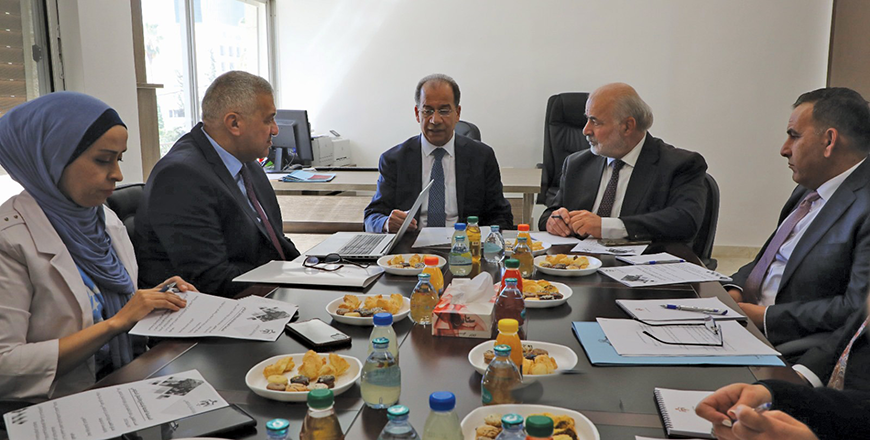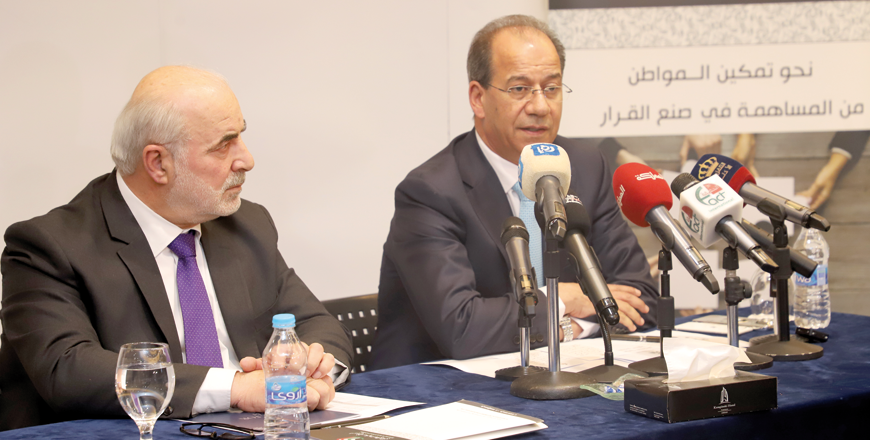You are here
PM approves Economic and Social Council to manage dialogue on media policy
By JT - Apr 09,2023 - Last updated at Apr 09,2023
AMMAN — Prime Minister Bisher Khasawneh has approved the Economic and Social Council to manage a dialogue on the government's public policy for media and communication, according to a document prepared by the Ministry of Government Communications.
Minister of Government Communications Faisal Shboul, who is also the government spokesperson, on Sunday, said that the ministry has drafted public policy regulating government media and communication. A comprehensive dialogue over the policy will be held with partners and stakeholders through the Economic and Social Council, he added.
The dialogue will include government and official media institutions, such as the Jordan Press Association (JPA), daily and weekly newspapers, local television and radio stations, licensed news websites, writers, experienced professionals, universities’ media faculties and departments, the Arabic Language Academy, the National Guidance Committees in the two chambers of Parliament and the Media Spokespersons Network in ministries and government institutions, according to the Jordan News Agency, Petra.
The ministry drafted the public policy for media and government communications based on the administrative regulatory system under which the ministry was established, Shboul said, adding that the draft policy is based on the Jordanian Constitution, and is aligned with the Royal vision for media, the document of the Royal Committee for Political System Reform and international agreements and commitments that affirm freedom of opinion, expression and respect for human rights.
The draft public policy for media and government communications is one of the ministry's tasks and commitments, Shboul noted. The policy will support programmes and initiatives that fall within the political, economic and social modernisation plans that were launched at the beginning of the Kingdom's second centennial.
The draft policy discusses building a relationship of trust with the public and media through tools such as media communication channels, media messages, a unified government narrative and ensuring the flow of information through media spokespersons.
The draft also focuses on improving regulations that govern media work to keep pace with rapid technological advancements. The policy also highlights media outlets’ important role in shaping and improving public discourse and opinion. It also addresses the risks and negative impacts of social media platforms, such as social media’s acquisition of advertising revenue at the expense of traditional media outlets.
The draft also covers political, economic and administrative modernisation by supporting efforts to increase the public’s political awareness and participation in partisan activities. The policy likewise highlights the importance of women and youth, and draws media plans to promote priorities outlined in the executive programme of the Economic Modernisation Vision and the Public Sector Modernisation Roadmap.
The draft also outlines processes on monitoring and evaluating reports on media freedoms, and encourages developmental media production through partnerships and cooperation between media outlets, the private sector, civil society institutions and other relevant entities.
Related Articles
AMMAN — Minister of Government Communications Faisal Shboul on Tuesday acquainted the Chairman of Economic and Social Council of Jordan Musa
AMMAN — The Economic and Social Council (ESC) on Sunday initiated a national dialogue session on government media and communication policy a
AMMAN — Minister of Government Communications Faisal Shboul on Wednesday congratulated media personnel on the occasion of World Press Freedo

















